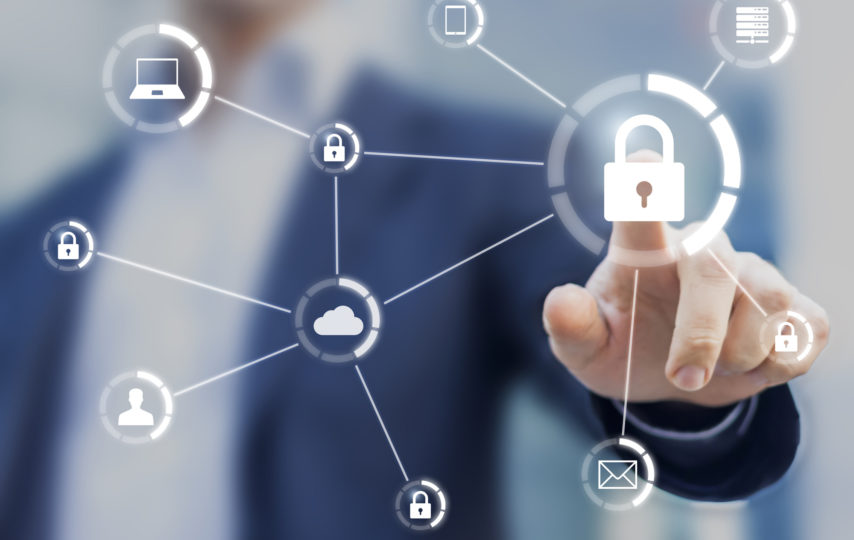As of last summer, around 42% of the United States workforce was working from home. Although some employees are now back in the office, many companies are making work-from-home the new norm.
However, while convenient, working outside of the office does open up the door to different business security issues. Hackers and cybercriminals are more prominent than ever, so businesses need to take serious steps to combat them.
Also, you can consider Fireproof Safe which is also a great solution for your business security.
So how can you go about ensuring that your business security systems are up to par?
Keep reading to learn about seven cybersecurity tips that ensure that your company data stays safe.
1. Perform a Security Assessment
Many businesses suffer from cybersecurity problems because they’re not aware of their current security loopholes. To combat that, make sure to perform regular security assessments that can help identify weak areas.
Inspect everything from company servers to the devices that you and your employees use. Your goal is to find any holes and plug them.
If you realize that there doesn’t seem to be a way to close a security loophole that pertains to a certain system or device, you might be better off switching to another one. It might seem inconvenient, but you’ll thank yourself later.
2. Create Strong Passwords
It might seem simple, but make sure that all of the passwords that you and your employees use are solid. Having weak passwords is the digital equivalent of leaving your door unlocked—it provides criminals with an easy way in.
Make sure that all of the passwords your business uses are lengthy and contain a mix of different characters. Besides making them lengthy and strong, you should also make a point to change them every few months.
Companies oftentimes use simple passwords because they know that their employees will have trouble remembering more complex ones. In that case, you might want to consider using a team password manager.
3. Make Sure Your Wireless Connection Is Secure
Make sure that the wireless network your company uses is secure. It should require a password or employee login, and authorized users should have no way to get on it.
Many companies have multiple Wi-Fi networks—one for employees and one for the public. This limits the number of people who can use your business network, and therefore the number of risks.
Encourage employees that are working from home to only use Wi-Fi networks that are secure. Networks to avoid include those at places like airports and unsecured coffee shops. You never know who might be snooping around on them!
4. Log off and Sign Out
Whenever you finish working, make sure that you log off and sign out of your computer. You’ll also want to encourage your employees to do the same. Doing so prevents other people from getting information off of your system.
Aside from your computer, make sure to do the same on other devices as well, like phones and tablets. Cybercriminals can use all of these as access points into your system.
You’ll also want to avoid using public computers for work-related tasks. Cybercriminals have an easy time breaking into these sorts of setups and look for things like bank information and company data.
5. Back Everything up
If the worst-case scenario does happen and someone breaks into your system, you want to limit the amount of damage that they can do. The easiest way to do this is by backing up all of your files and data.
Hackers often plant ransomware and other viruses. These can delete your data, or in some cases, hold it hostage. Save yourself the time and the trouble by keeping it all safe.
Depending on how much data you have, you might want to work with an outside provider. They’ll help you ensure that all of your files stay safe and sound.
6. Stay up to Date
Although not everyone does it as often as they should, most people know that they should update their computers instead of clicking the ‘Remind Me Later’ option. Doing so lets you enjoy the latest security measures and improvements.
While everyone should update their systems as often as possible, staying up to date is even more important for companies.
Ensure that the antivirus software your business uses is always updated and ready to go. It works to protect your data and keeps your corporate identity safe, so failing to update it is like an invitation to cybercriminals everywhere.
7. Don’t Let Devices Fall Into the Wrong Hands
Make sure that your employees watch over the devices they use to work. If they fall into the wrong hands, it can pose a major security threat.
By keeping track of everything, you’ll know right when something goes missing. You can then get to work resolving the situation before it gets worse.
If a device does fall into someone else’s hands, following some of the previous points should limit the amount of damage that they can do. Software updates, passwords, and some of the other security measures can all make a big difference.
Make Business Security a Priority
Whether your employees are in the office or still working from home, business security should always be a priority. The future of your company depends on it.
Make sure to take advantage of some of the tips laid out in this guide. In doing so, you’ll be able to strengthen the cybersecurity of your business, ensuring that all of your data stays safe.
If you’re looking for more articles that will help your business stay safe, you’ve come to the right place. Check out the rest of our site for more helpful guides and tips.













